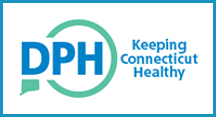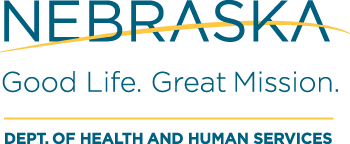October 25, 2018 | Advocacy
The AATA is pleased to share that state agencies in Connecticut and Nebraska have approved applications to conduct studies on into the need to regulate art therapy. These comprehensive studies to determine the need and the appropriate level of regulation of a profession, commonly referred to as “sunrise reviews,” are prerequisites for the legislature to consider licensing a new profession and are now required at varying degrees in 14 states . The news of these accepted sunrise review applications comes on the heels of the first completed sunrise review in Virginia, a year-long study that led to the determination by the Board of Health Professions that distinct licensure for art therapists is necessary to protect the public from harm and from fraud.
 The Connecticut Art Therapy Association (CATA) received notice on October 19, 2018, that their proposal was accepted and the Connecticut Department of Public Health will convene a scope of practice review committee for art therapy. This is the third year the chapter has submitted a proposal and the first year it has been considered. Over the past three years, CATA has collaborated with the AATA National Office to strengthen their application from year to year as we continue to learn from similar processes in other states. The chapter has also actively responded to questions and opposition from other professions and demonstrated the ability to accommodate these concerns when appropriate.
The Connecticut Art Therapy Association (CATA) received notice on October 19, 2018, that their proposal was accepted and the Connecticut Department of Public Health will convene a scope of practice review committee for art therapy. This is the third year the chapter has submitted a proposal and the first year it has been considered. Over the past three years, CATA has collaborated with the AATA National Office to strengthen their application from year to year as we continue to learn from similar processes in other states. The chapter has also actively responded to questions and opposition from other professions and demonstrated the ability to accommodate these concerns when appropriate.
 In Nebraska, art therapists pioneered an innovative approach of submitting a request for sunrise review with a broader coalition of educational institutions and mental health and arts organizations. The Nebraska Art Therapy Licensure Coalition is comprised of Nebraskans for the Arts, Concordia University, Nebraska, The Brain Injury Alliance of Nebraska, Heartland Counseling, the Nebraska Arts Council, and individual art therapists. On October 9, 2018, the Coalition received word that their proposal outlining the intention to undergo the sunrise review process and also propose licensure legislation is eligible for review by the Department’s Credentialing Review Program.
In Nebraska, art therapists pioneered an innovative approach of submitting a request for sunrise review with a broader coalition of educational institutions and mental health and arts organizations. The Nebraska Art Therapy Licensure Coalition is comprised of Nebraskans for the Arts, Concordia University, Nebraska, The Brain Injury Alliance of Nebraska, Heartland Counseling, the Nebraska Arts Council, and individual art therapists. On October 9, 2018, the Coalition received word that their proposal outlining the intention to undergo the sunrise review process and also propose licensure legislation is eligible for review by the Department’s Credentialing Review Program.
The AATA is hopeful that the favorable results in Virginia will have positive implications in other states undergoing this comprehensive process, including Connecticut and Nebraska. AATA members in seven additional states have submitted sunrise review applications in the past. While reviews finding insufficient documented evidence of public harm by art therapists to warrant licensure stalled efforts in Vermont and Colorado, the sunrise review process opened new legislative or regulatory approaches that created benefits for art therapists in Arizona and Utah. Additionally, applications submitted by chapters in Florida and Minnesota proved to be a valuable opportunity to educate the legislature on issues related to licensure for art therapists, including the need for regulation, details of licensing proposals, potential conflicts with other professions’ scope of practice, and cost estimates.
The state agency decisions to initiate reviews of art therapy in Connecticut and Nebraska reflect a growing awareness of art therapy as a distinct profession and, much like the recent sunrise review in Virginia, could be instrumental in promoting licensure of art therapists in both states.
